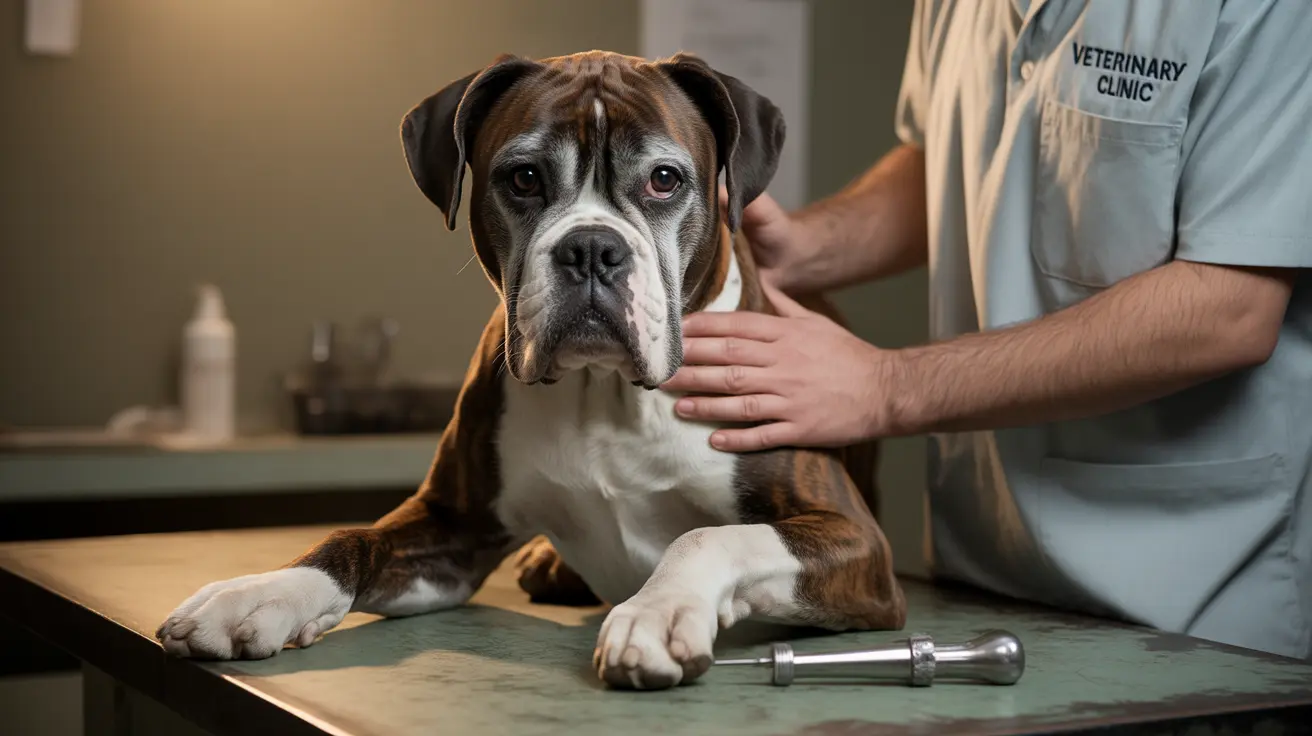Understanding Sunken Eyes in Dogs
When a dog's eyes appear recessed or hollow, it can be concerning for pet owners. Sunken eyes in dogs, medically known as enophthalmos, can indicate various health conditions ranging from minor dehydration to more serious neurological disorders like Horner's syndrome. Understanding the potential causes and recognizing when to seek veterinary care is crucial for your pet's health.
This comprehensive guide will explore the various reasons behind sunken eyes in dogs, help you identify warning signs, and explain treatment options available for different underlying conditions.
Common Causes of Sunken Eyes in Dogs
Dehydration and Weight Loss
One of the most common causes of sunken eyes in dogs is dehydration. When a dog becomes dehydrated, their eyes may appear recessed due to fluid loss in the surrounding tissues. This can occur due to:
- Insufficient water intake
- Excessive panting or exercise
- Vomiting or diarrhea
- Hot weather conditions
- Illness affecting fluid balance
Horner's Syndrome
Horner's syndrome is a neurological condition that commonly causes sunken eyes in dogs. This condition occurs when there's damage to the sympathetic nervous system pathway controlling facial and eye muscles. Additional symptoms include:
- Drooping upper eyelid
- Constricted pupil on the affected side
- Elevated third eyelid
- Increased warmth in the ear and nose on the affected side
Other Medical Conditions
Several other health issues can lead to sunken eyes in dogs:
- Orbital trauma or injury
- Eye infections or inflammation
- Loss of orbital fat (common in aging dogs)
- Systemic illness
- Tumors or masses in the eye socket
Diagnosis and Veterinary Care
If you notice your dog has developed sunken eyes, a veterinary examination is essential for proper diagnosis. Your vet may perform:
- Physical examination
- Blood work and urinalysis
- Imaging tests (X-rays, CT scans, or MRI)
- Specialized eye examinations
- Neurological assessment if Horner's syndrome is suspected
Treatment Options
Treatment for sunken eyes depends on the underlying cause:
- Dehydration: Fluid therapy and addressing the cause of fluid loss
- Horner's syndrome: Treatment of underlying conditions (ear infections, trauma)
- Infections: Appropriate antibiotics or antifungal medications
- Trauma: Wound care and pain management
- Age-related changes: Supportive care and monitoring
Prevention and Monitoring
While not all causes of sunken eyes are preventable, you can take steps to minimize risk:
- Ensure constant access to fresh water
- Monitor your dog's hydration status
- Regular veterinary check-ups
- Prompt attention to eye changes or injuries
- Careful handling to prevent trauma
Frequently Asked Questions
What causes sunken eyes in dogs and how is it related to Horner's syndrome?
Sunken eyes in dogs can be caused by various factors, including dehydration, trauma, and neurological conditions. Horner's syndrome specifically causes sunken eyes due to dysfunction in the sympathetic nervous system, affecting muscle tone around the eye.
How can I tell if my dog's sunken eye is due to Horner's syndrome or another condition?
Horner's syndrome typically presents with additional symptoms beyond sunken eyes, including a drooping eyelid, smaller pupil, and elevated third eyelid. A veterinary examination is necessary for accurate diagnosis.
What treatments are available for dogs with Horner's syndrome and sunken eyes?
Treatment depends on the underlying cause. If due to Horner's syndrome, addressing the primary condition (such as ear infections or trauma) is essential. Some cases resolve spontaneously, while others may require specific medical intervention.
How long does it usually take for Horner's syndrome symptoms like sunken eyes to improve in dogs?
Recovery time varies depending on the cause. Idiopathic cases may resolve within weeks to months, while cases with underlying conditions may take longer and require ongoing treatment.
When should I take my dog to the vet if I notice sunken eyes or droopy eyelids?
Seek veterinary care promptly if you notice sudden changes in your dog's eye appearance, especially if accompanied by other symptoms like lethargy, reduced appetite, or changes in behavior.
Conclusion
Sunken eyes in dogs can signal various health issues ranging from simple dehydration to complex neurological conditions. Understanding the potential causes and recognizing when to seek veterinary care is crucial for your pet's well-being. Always consult with your veterinarian for proper diagnosis and treatment if you notice changes in your dog's eye appearance or overall health.






